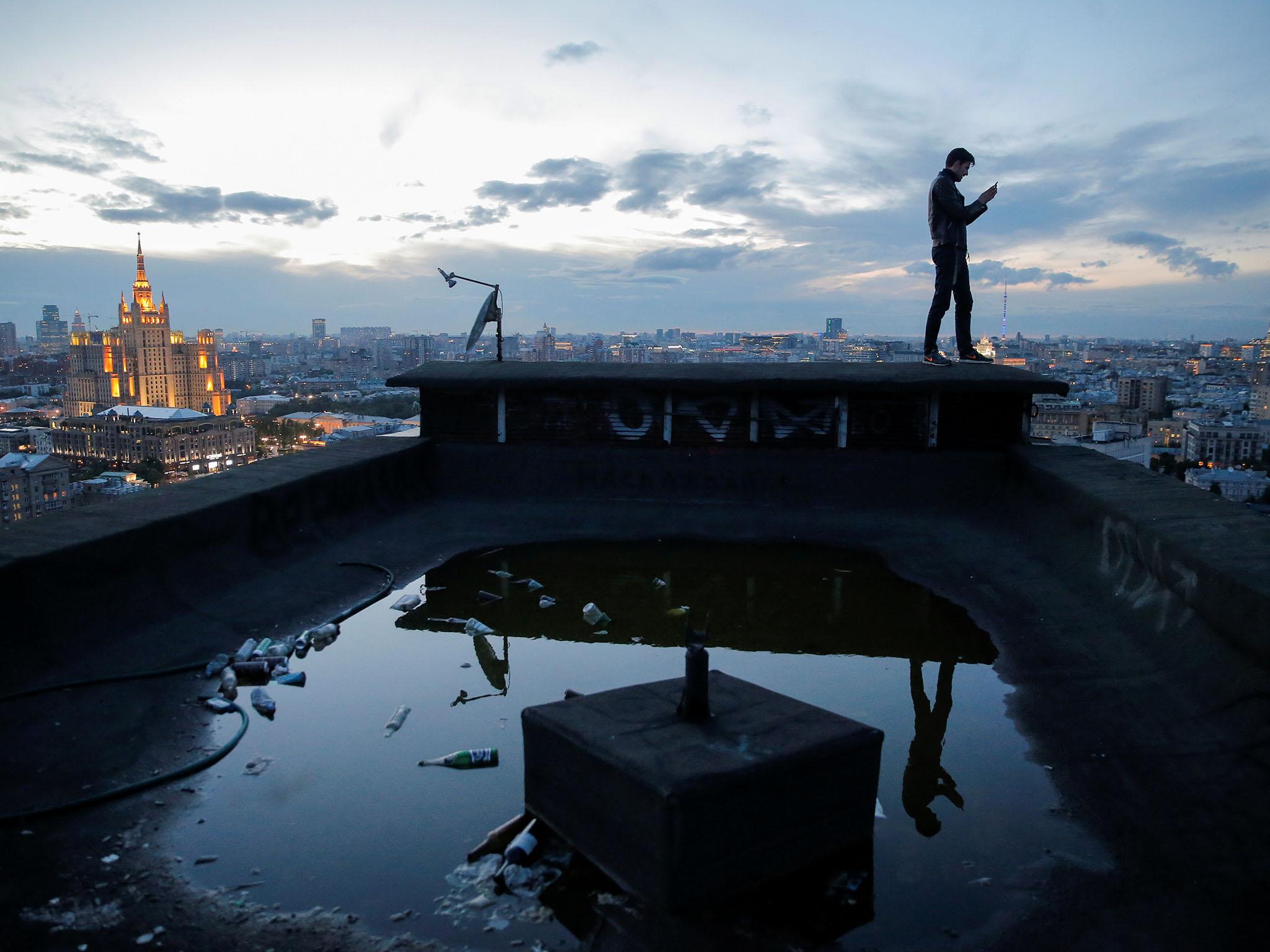Young Muscovite group risks life and limb to scale tall buildings
Some of the Rudex group said they fear that authorities will introduce legislation to ban their pastime outright

A handful of young Muscovites spend their spare time braving the risk of arrest, injury and even death to scale tall buildings. Their motivation is simple: to feel more alive.
The group consists of four Russians and one Frenchman who visits Moscow and they call their team “Rudex”, which stands for “roof and decay exploration.”
Their passion has taken them to the top of some of the city’s best known landmarks and also, on occasion, to detention by police. None has been injured since the group was founded in 2008.
What they do mirrors the Western craze for “urbex”, or the urban exploration of man-made structures.
Konstantin Drykin’s biggest climb was of a Stalin-era, 176-metre (528-ft) apartment block near the Kremlin in August 2014.
Another “roofer”, Georgy Lanchevskiy, climbed in 2013 the spire of Moscow State University, which is 240 metres high. He said the risk of death or arrest gave him an adrenalin rush.
In the same summer, Lanchevskiy took his passion to Minsk, the capital of Belarus.
“Our first roof there was a clock tower just opposite the building of the KGB,” he said. “Next day, we ‘roofed’ the pedagogical university, right next to the government headquarters.”
Their movement is non-political and they have no ideology. But in a show of concern for urban renewal they sometimes take pictures of buildings that are decaying, unkempt or lacking security and post them to social media.
“Some are parachute jumpers. Some go to church. Some love skiing. But I walk on roofs,” said Grigory Shukhov. “I like the atmosphere on the roof. It’s unusual. It’s romantic.”
Some of the Rudex group said they fear that authorities will introduce legislation to ban their pastime outright, perhaps out of concern that it could induce teenagers to commit suicide. The reality, they said, is that urbex is life enhancing.
“Let’s ban everything and the atmosphere for youths will really get dull,” Shukhov said. “What will we do? Sit and booze on the porch of our homes? Or maybe look for drugs?”
Reuters
Join our commenting forum
Join thought-provoking conversations, follow other Independent readers and see their replies
Comments
Bookmark popover
Removed from bookmarks